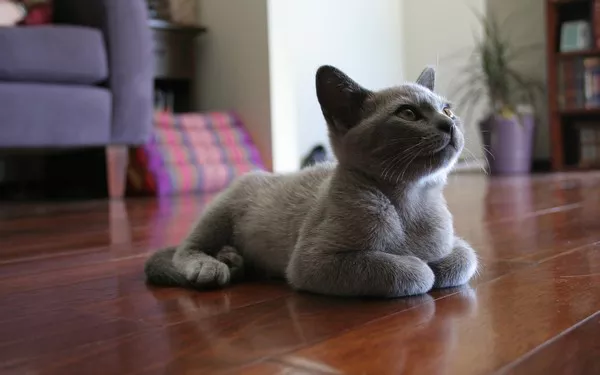When planning a trip, handling work commitments, or facing an unexpected emergency, pet owners often find themselves in need of a solution for their cat’s care. One of the most important decisions that pet owners face is whether to hire a cat sitter or use a cat boarding facility. Both options provide excellent care, but they come with distinct benefits and considerations. To help pet owners decide the best course of action, it’s important to weigh the advantages and disadvantages of each option.
In this article, we will discuss the basics of cat sitting and cat boarding, compare the benefits of each, explore considerations for making a decision, and provide practical tips for selecting either a cat sitter or a boarding facility.
Overview of Cat Sitting and Boarding
Cat sitting and cat boarding are two of the most popular options for cat care when pet owners need to be away from home. Both offer specialized services that cater to the needs of cats, but they do so in very different ways.
Cat Sitting involves hiring a professional to come to your home to care for your cat while you are away. The sitter typically visits your home one or more times per day, depending on your preferences and your cat’s needs, to feed, play with, and monitor your cat’s well-being.
Cat Boarding, on the other hand, involves sending your cat to a dedicated facility where trained professionals take care of them. Boarding facilities provide a temporary home for your cat, often with different room options, socialization with other animals, and scheduled feeding and playtime.
Both options offer care from trained individuals, but the setting and nature of the care differ. The choice often depends on the cat’s needs, the pet owner’s preferences, and the specifics of the situation.
Advantages of Cat Sitting
For many pet owners, having a cat sitter provides several compelling benefits. Here’s why you might opt for this option:
Familiar Environment
One of the most significant advantages of hiring a cat sitter is that your cat stays in the comfort of their own home. Cats are known for being creatures of habit and can become stressed when moved to new environments. A sitter allows your cat to maintain their routine and stay in a familiar environment, which can significantly reduce stress and anxiety.
Personalized Care
Cat sitters can provide customized attention based on your cat’s specific needs and preferences. Whether your cat requires a special diet, medication, or just extra playtime, the sitter can follow the routines and instructions that you’ve established. This personalized care can be especially important for senior cats or those with medical conditions that require extra attention.
Reduced Exposure to Illness
Cats are naturally prone to being territorial, and boarding facilities may expose them to illness or parasites from other animals. By staying at home, your cat avoids exposure to other pets and the risks associated with group environments, such as respiratory infections or flea infestations. This is especially important for cats with weaker immune systems.
Advantages of Cat Boarding
While cat sitting has its advantages, boarding facilities also offer unique benefits that might make them the better option in certain situations.
Professional Supervision
Many boarding facilities have trained staff available 24/7 to monitor the cats. This professional supervision can provide peace of mind to pet owners, knowing that their cat is in good hands. Staff members in boarding facilities are trained to handle cats in various situations, including administering medications, identifying signs of illness, and dealing with emergencies.
Social Interaction
For some cats, social interaction is essential. Boarding facilities often allow cats to socialize with other cats or interact with people, which may be ideal for cats that enjoy meeting new companions. While some cats prefer solitude, others thrive in social settings, and a boarding facility may provide an enriching environment for them.
Structured Environment
For cats that thrive on routine, boarding facilities can offer a structured environment. Cats receive meals and playtime at specific times, and their activities are monitored to ensure they are getting the proper care. This structure can be beneficial for cats that are sensitive to changes in their environment or routine.
Is It Better to Have a Cat Sitter or Boarding?
When deciding whether to hire a cat sitter or choose a boarding facility, several factors should be considered. Here are some of the most important:
Cat’s Personality
The first factor to consider is your cat’s personality. Some cats are very independent and thrive when left in a familiar environment, while others may enjoy the new experiences that a boarding facility provides. Cats that are more social and curious may find the interaction with other animals at a boarding facility to be stimulating, whereas shy or anxious cats may prefer the quiet comfort of their home with a cat sitter.
Health Needs
If your cat has specific health needs, such as requiring medication or a special diet, a cat sitter might be the better option, as they can provide one-on-one attention and tailor care to your cat’s needs. On the other hand, if your cat requires frequent monitoring, particularly after surgery or during illness, a boarding facility with trained staff may be better equipped to provide around-the-clock care.
Cost
Cost is another crucial consideration when choosing between cat sitting and boarding. Generally, hiring a cat sitter can be more expensive, especially if you require multiple visits per day. Boarding fees typically vary depending on the facility and the type of accommodation provided (e.g., shared rooms or private suites). Be sure to compare pricing and what services are included in each option.
Choosing a Cat Sitter
If you decide that a cat sitter is the right choice, there are some important steps to follow when selecting the best sitter for your cat.
Finding a Qualified Sitter
When choosing a cat sitter, it’s essential to find someone trustworthy and experienced in caring for cats. Recommendations from friends, family, or neighbors who have used a sitter in the past can be helpful. Pet care websites like Rover or Care.com also have a database of qualified sitters that you can review. Be sure to read reviews, ask about their experience with cats, and inquire about insurance or bonding for peace of mind.
Preparing for the Sitter
Once you’ve hired a sitter, make sure to prepare your home and your cat. Leave clear instructions about your cat’s diet, medical needs, and preferences. Provide emergency contact information and any vet details in case of an emergency. It’s also helpful to leave the sitter with extra keys or access codes if necessary.
Choosing a Boarding Facility
If you opt for a boarding facility, take the time to choose a reputable one.
Facility Tour
Before committing to a boarding facility, visit the location in person to ensure that it’s clean, safe, and comfortable. Check the cleanliness of the rooms, the amenities provided, and the overall environment. A well-kept facility is an indicator of good management and attention to detail.
Staff Qualifications
The staff at the boarding facility should be trained in cat care, including first aid and handling medical emergencies. Ask about the staff-to-cat ratio to ensure that each cat receives individual attention. It’s important to make sure the staff members are knowledgeable about feline behavior and are capable of handling any issues that may arise.
Health and Safety Protocols
Make sure the boarding facility follows proper health and safety protocols. Ask about vaccination requirements and the steps they take to prevent the spread of illness. It’s also essential to ensure that the facility has a clear plan for emergencies, including access to a veterinarian.
Tips for Reducing Stress
Whether you choose a cat sitter or a boarding facility, it’s important to minimize stress for your cat during your absence.
Familiar Items
If your cat is boarding, consider bringing familiar items from home, such as their favorite blanket, toy, or bed. These items can provide comfort and help them feel more secure in the new environment.
Gradual Acclimatization
If you opt for boarding, consider gradually acclimating your cat to the facility by scheduling short stays before a longer absence. This will help your cat adjust to the new environment and reduce any anxiety they may feel.
Conclusion
Ultimately, whether cat sitting or cat boarding is the best option depends on your cat’s needs, your preferences, and the nature of your absence. For cats who are anxious or need personalized care, cat sitting may be the best choice. For cats who enjoy social interaction or benefit from a structured routine, a boarding facility might be more suitable. By carefully assessing your cat’s personality, health needs, and the specific circumstances of your absence, you can make an informed decision that ensures your cat remains safe, comfortable, and well cared for during your time away.
Related Topics

























